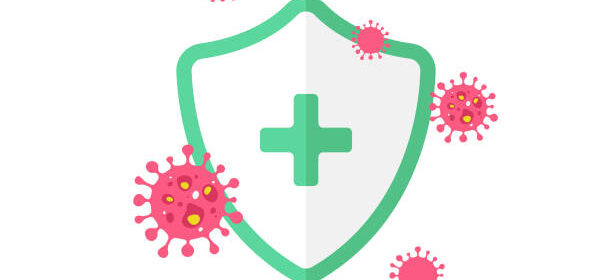Biological Sex Plays an Essential Role in the Immune Response

KENNEDI SCALES – The immune system is an extraordinary and powerful defense mechanism of the human body. It is primarily responsible for protecting us from potential threats that are caused by bacteria or viruses, or by diseases such as cancer. As we have witnessed during the pandemic, even the immune system has its limits. These shortcomings can be lessened through healthy habits and the use of vaccines. However, if we take a closer look, there are factors that affect the immune system in ways that are both fascinating and essential to understand.
The biological sex of an individual plays an essential role in the determination of immune cell metabolism to an extent that contributes to disparities between men and women. Autoimmune diseases affect only about five to eight percent of the population, yet 78% of affected individuals are women. This is primarily due to differences in sex hormone receptor signaling within T cells.
Androgens are a class of sex hormones that are made by all sexes, but are more abundantly in males. Estrogens are another class of sex hormones. Females create more estrogen. These sex hormones have been shown to suppress or enhance immune responses, depending on what the immune system is responding to.
Asthma, for example, is caused by airway inflammation. Before puberty, it is much more likely for males to have asthma as opposed to females. After puberty, however, that trend flips; the prevalence of asthma in females becomes significantly higher than that in males. Research suggests that this is caused by androgen receptor signaling in T helper 17 (Th17) cells. This signaling suppresses glutamine metabolism, a process that induces the release of cytokines that are responsible for causing airway inflammation. Since males have more androgens, there is a higher degree of glutamine metabolism suppression. There is a possibility that estrogen signaling has the opposite effect by enhancing glutamine metabolism.
Alternatively, the decreased cytokine release due to the suppression of glutamine metabolism plays an essential role in defense against cancer. Cytokines are essential anti-cancer secretions, and understanding sex-based differences can be crucial to improving treatments for patients with cancer. Research suggests that there are sex-specific pathways, targets, and biomarkers.
Though biological sex and gender can be mixed up and used interchangeably, they actually have separate definitions. While biological sex is the label assigned at birth based on biological factors (most often chromosomes), gender is a social construction and how an individual chooses to identify. Both sex and gender act as social determinants of health, as they affect gaps in health outcomes and risks. These differences are caused by the intersectional effects of social structures that contribute to the marginalization of certain populations. Additionally, as biomedical research has revealed, these differences are also exacerbated by sex-based biological differences. It is essential for researchers and doctors to understand the differences and interactions between the two to work toward changing these disparities.
Understanding that sex-based and gender-based differences influence such drastic differences in immune responses to many health conditions is vital to the future of medicine and biomedical research. A better understanding might provide guidance on how to treat, for example, patients with hormone deficiencies or patients undergoing hormone therapies. This emphasizes the importance of diversity and the necessity of studies that include or isolate all sexes and genders to create more effective treatments tailored to each community, as biological sex affects the most essential and sensitive pieces of our biological systems.
Copy editor – Alina Baiju
